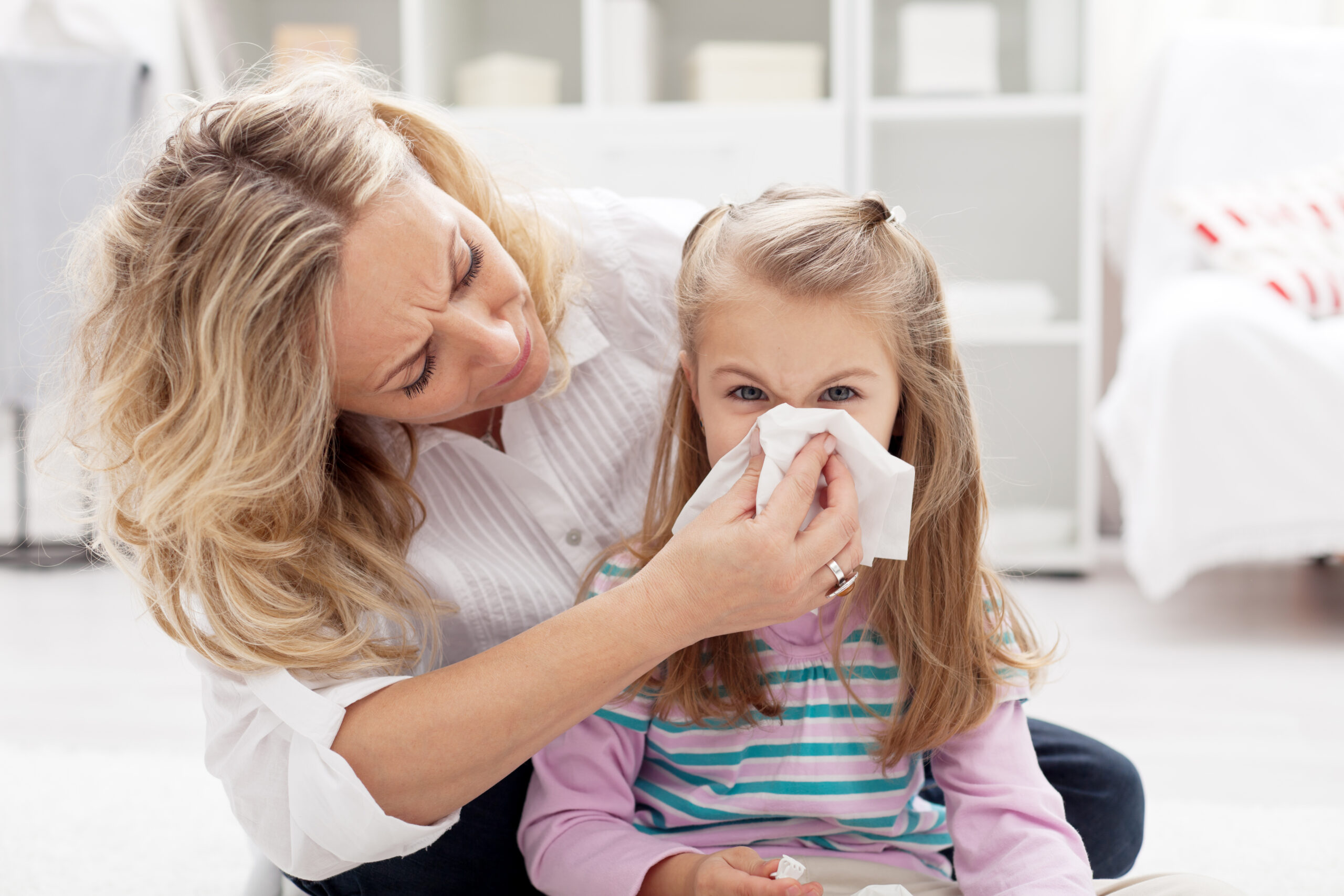This article appeared in The Detroit News. Read more here.
Cases of respiratory syncytial virus, or RSV, have been rising in Michigan since late September, according to the Centers for Disease Control and Prevention, which tracks average RSV detections over five-week periods.
Corewell Health’s Helen DeVos Children’s Hospital in Grand Rapids reported being at or near capacity last weekend, amid an increase in pediatric RSV admissions, according to the hospital’s chief of pediatric acute care Andrea Hadley during a virtual press conference Tuesday. The health system’s Children’s Hospital in Royal Oak isn’t seeing quite as many hospitalizations as the west side, spokeswoman Andrea Finnigan said.
“We are starting to see an increase in our volume of pediatric patients who are coming into our emergency departments, our urgent cares, primary cares, and into our hospital with respiratory syncytial virus,” Hadley said. “Our hospital is starting to fill up. … We have been at or near capacity this past weekend.”
The Detroit Medical Center Children’s Hospital of Michigan also is seeing an uptick in RSV cases, but the numbers are consistent with a pre-COVID RSV season, said Chief Medical Officer Rudolph Valentini.
“While we are seeing an uptick in RSV at Children’s Hospital of Michigan at this time, only about 10% of our inpatients are hospitalized with RSV,” Valentini said. “In our Emergency Department, we went from seeing single-digit positive tests in September to about 10 a week in early October and around 80 positive tests last week.”
The increase in RSV cases is causing slightly longer wait times in the emergency department and patients are being cared for in redesigned areas of the hospital that typically are not used for that purpose, said Corewell’s Hadley.
RSV is a common virus that typically causes mild, cold-like symptoms, but can be serious and lead to hospitalization in infants and older adults, according to the CDC. It can cause bronchiolitis, or inflammation of the small airways, and pneumonia, which can be fatal.
Common symptoms include a runny nose, cough, decreased appetite, apnea, retractions and fever, according to the CDC. Retractions, or when the area between the ribs and in the neck sinks in during breathing, are a sign to bring a child to the hospital, Hadley said.
Premature infants, children under the age of two with chronic lung disease, children with neuromuscular disorders, and immunocompromised children are at higher risk for severe RSV. Infants who are less than one year old, especially those less than six months old, are at highest risk for RSV-related hospitalization, Hadley said.
“That is a virus that causes cough, congestion, fevers and for our youngest patients, our infants and high-risk young children, can cause difficulty breathing,” Hadley said. “The reasons to bring your child to the emergency department have remained the same and that is that trouble breathing, not being able to eat or drink, and sleepiness or continued fevers.”
While a winter surge in pediatric RSV cases is typical, last year Michigan experienced a caseload that threatened to overwhelm hospitals and emergency departments. Hadley said it is too soon to tell if the surge will be repeated.
“We did see a very high volume of that last year and it’s a little bit too early in Michigan yet to know if this is going to be better than last year (or) worse than last year,” Hadley said. “The great news is that our teams are well prepared to care for an increased volume.”
The severity of illness Hadley has seen in RSV patients so far this year is standard, she said.
When people began to gather in person after the COVID-19 lockdown periods ended, a large number of RSV-naive children between the ages of one and three were exposed to the virus at the same time, Valentini said. This resulted in “an extraordinarily large number of infected children last season.”
“This year, we’re back to a more normal RSV season,” he said.
New RSV vaccines for adults 60 years old and up and pregnant individuals, meanwhile, were approved by the Food and Drug Administration this past year. While an RSV vaccine has not been approved for children, a new monoclonal antibody treatment to prevent RSV in babies and toddlers is available, although supplies are limited.
The CDC reported last month that supplies of nirsevimab, the antibody treatment, were limited due to unprecedented demand. The CDC recommended that hospitals prioritize available doses for the youngest and highest-risk infants and avoid using two doses in babies less than 11 lbs for the 2023-24 RSV season.
“There has been a shortage in ability to order high volumes of doses of these medications,” Hadley said. “We have reserved a specific number of doses for the highest-risk patients so that they have access to that very effective treatment, and then we also have a number of doses that are available to… otherwise healthy infants that are still at high risk because of their age.”
It is unclear what the availability of the treatment will look like next month, Hadley said.
Lansing’s Sparrow Hospital also has a limited supply of RSV antibody treatment for infants, according to Sarah Collins, the interim nursing director for pediatric services. Sparrow’s pediatrics department and pediatric intensive care unit have beds available and are seeing fewer RSV cases than in November of last year, Collins said.
“Due to the national shortage, we are currently prioritizing the most premature infants (for immunization),” Collins said. “Pediatricians are prioritizing their most high-risk patients.”
Not all RSV patients require hospitalization and nearly all children are infected by the age of two, according to the CDC. At-home treatment options include suctioning children’s noses, hydration, Tylenol and Motrin, Hadley said. She encouraged everyone to wash their hands, wear masks and avoid family gatherings when sick this Thanksgiving.
“The highest risk patients are those very young infants or patients with underlying medical complexity,” Hadley said. “Avoiding bringing those patients to crowded family gatherings and exposing them to potential RSV will be very important.”

